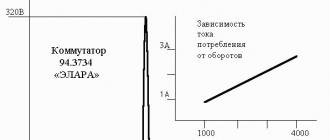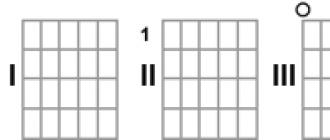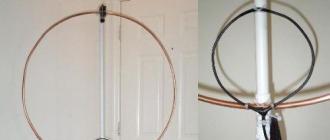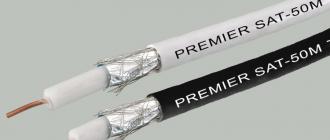Modern market mobile devices teeming with a variety of brand names and operating systems. You can find the most bizarre and rare, ranging from iOS to Apple smartphones and ending with Blackberry OS. However, the undisputed leaders in this invisible marketing battle are the three most popular systems - these are Android OS, Windows Phone and iOS. However, first of all, it is worth comparing budget models with each other, without aiming at the sky-high expensive Apple products... Therefore, this article will compare two leaders - operating systems from Microsoft and Google. Each of them is unique and convenient in its own way, but you will have to try to determine the winner.
Probably the most important criteria for a user should be such as:
- Interface and customization.
It is worth understanding each item separately.
Windows Phone smartphones have a tiled interface that is standard for the latest Microsoft operating systems. It is ideal for tablet PCs, but on smartphones at first it looks bulky and inconvenient, albeit stylish.
Android has a very light, flexible and fluid interface. Latest Versions have the same animation and style in all sections, which makes getting used to outward appearance systems more lightweight.
Both systems, however, are easy and simple to customize for the user individually. And each of them is almost equally easy to learn. So here it is problematic to identify the leader.
Smartphones based on Microsoft operating systems in this nomination are losing with a bang. And there is a reason for this. The creation of applications that can run on this OS is very limited and practically undeveloped. The result is a total of 250 thousand applications.

While Android users get at their disposal more than a million applications of very different directions. This is a huge plus, since the choice is wide enough. Moreover free programs on this system, they still prevail over paid ones.
As for accessibility, you won't be able to install applications from third-party sources in Windows Phone without unnecessary problems, the system will have to be hacked. Whereas Android works quietly with programs from any source, not just from.

In this case, both systems are very productive, therefore, they require more energy for their functioning. And therefore they have such useful function like Battery Saver, showing apps that are consuming power and tools to complete them. In addition, smartphones with operating systems of both companies are equipped with batteries with a sufficient supply of energy to "feed" demanding applications. Therefore, it is not possible to answer which system is better here.
Smartphones with both platforms receive periodic updates. And both platforms have such a problem as the "withering away" of older devices, that is, the inaccessibility of the freshest packages for outdated models.
Windows Phone makes it impossible to upgrade old smartphones from WP7 to 8 and even more so 8.1. However, system updates are released quite often and are more stable due to a single firmware supplier.

Android, on the other hand, consistently delivers updates to most of its smartphones, but still older models do not have this opportunity - for them new platform may be too "heavy" and simply not optimized. This also lies in the fact that the system has a lot of smartphone manufacturers, that is, many different firmwares under the same name. And if some vendor decides not to support anymore old model- then from Google nothing will depend.
The availability of the system for "digging into the insides of the device" for some users is almost the key in a smartphone. And here the undisputed leader is. Since it was created on the originally free Linux kernel, the manufacturers decided not to change its credo and left the source code open to anyone interested. Hence - a huge number of firmware for smartphones, the ability to register Root-rights for yourself without any problems, and much more. Microsoft is more conservative in this regard, so it won't be possible to dig deeper into the system - the source code is reliably hidden from all those in need.

However, this plus easily turns into a minus when it comes to data security. Since Android is a system open to anyone, a lot of viruses have been written for it. But to protect yourself from them, it is enough to install a special antivirus and not install applications from third-party sources. But Windows Phone is more secure for two reasons - the platform is not as popular as Android, so it is not so profitable to create viruses for it, and it has a closed code and the ability to install applications only through the official store, that is, it will be more difficult to launch a virus.
If the user needs a safe, albeit a closed smartphone, then Windows Phone is in the lead, but if you want freedom in working with the device, then you can fence yourself in with antiviruses and buy a device on Android OS.
Cortana for Windows Phone integrates more deeply into the operating system. She is able to bind to any application, contact or event. If configured correctly, it works more accurately and in a targeted manner than its competitors.
Google now just started its development. It is as integrated into the system as Cortana, but has much fewer features. It doesn't bury itself so deeply in files, but it does a great job of being a search engine.

Searching for and processing information on the Internet completely changes the picture. According to research by Stone Temple Consulting, according to this criterion, Google Now is the undisputed winner. The agency compiled 3,086 questions that were asked to both assistants. And the study found that Google Now correctly recognized and answered 1,795 of them, that is, more than 50%, while Cortana practically failed: it processed only 630, or 20%.
As for the accuracy of information in such matters as "How many years ago was Elvis Presley born" and the like, then Google Now is also in the lead. The researchers considered the answer in the form of the date of birth to be incorrect, they needed a specific number - how many years ago? And it was Google Now that was able to handle such requests perfectly. The accuracy of the information was as much as 88% against almost half the figure for Cortana - only 40%.
Summing up
There is no definite answer which operating system is better. In fact, each customer will choose according to the functions and capabilities they need. But if you briefly describe each platform, then you can put it like this:
- Android is a flexible and open platform with many official and not so official applications. It is offset by some instability and openness to viruses.
- Windows Phone is a young, but more secure platform, has its own features like Cortana, but fewer features and different programs.
Each user should make a conclusion for himself what he needs more - openness or security, stability or the ability to "take matters into their own hands."
Today, every second, not counting every first, would not mind having a tablet. Often, future users, with a few exceptions, have a very vague idea of what, in fact, they are going to do with this gadget. Therefore, in social networks and on specialized forums, questions from the “what to choose” series are multiplying: which diagonal, or 3G, which is better - Windows or Android?
Let's try to figure it out with the last point.
Where to begin?
So, we choose the operating system for the future tablet. Let's start, as always, with philosophy - before making a choice, you should still decide on the functionality that you, as a user of the device, need. If your entire user scenario is about surfing the Internet, in social networks and watching videos, any platform is suitable for you.

Although, in this case, the best choice will be more mobile-friendly. If you plan to use a gadget for work, you need to compare not platforms, but the availability of the necessary software or its analogues. Often, some specialized software exists only for a specific operating system, which determines the final choice.
You need to understand what is the difference between Android and Windows. First of all, Android was developed from the very beginning as a mobile platform. Whereas Windows is still an adapted version of the desktop operating system. Naturally, this entails certain differences in the operating scenarios. For example, the interface is better suited for the “green robot”. Although in Windows 8.1 they did a great job aimed at improving the user experience precisely in terms of interaction with the touch screen.

Quite frankly, the comparison of mobile and desktop platforms is initially not very good good idea... Indeed, in fact, they are intended for different tasks... Nevertheless, Windows tablets are getting better, the system is also being "finished", so for the average user the question of choice is still relevant.
Hardware and software
On the one hand, since a Windows tablet is the same system that is installed on laptops and desktops, the set of software is appropriate there. That is, everything that exists under Windows would be pulled by "hardware". But even with this, the situation is improving, if earlier a powerful hardware component for a tablet on "Windows" almost always meant active cooling (and not the most powerful configurations, in all honesty, they sinned with this), then with the release of a new line Intel Core M this problem will be resolved shortly.

There are already models based on the new generation of processors that are comparable in hardware characteristics to some ultrabooks.
Returning to the software, it should be noted that it is better not to try to play especially demanding game projects on a Windows tablet, since the device is not simply designed for this. But more or less simple titles, casual games, timeless classics (hello, "Fallout" and "Heroes 3") and other not very resource-intensive games and programs will delight you. The same applies to application software - 3D modeling is definitely not for a mobile gadget. But office tasks, light photo processing, even in some cases - video, is quite within the power of a "tablet". Many people do programming or web development on tablets, although they hardly use it in this case as their main work machine.
On the other hand, the difference between the systems from Microsoft and Google is precisely that the latter is more optimized. We all know that when working with Windows, unpleasant stories occasionally happen - either the drivers "fall off", then the system simply freezes, then in " blue screen death ”will start to leave in an arbitrary way. Android is most often devoid of such problems - all applications, like the system itself, are to one degree or another adapted to the hardware capabilities of the devices. If the hardware is not designed to run "heavy" games or programs, then they will not start, which the system will kindly report.
Summing up, we can say that when choosing a tablet for Windows or Android, first of all, you should pay attention to the set that you plan to use. All other factors being equal, it is this parameter that will become decisive. The rest of the platforms on this moment have comparable capabilities, even their famous office suite Microsoft recently released for the operating system from Google.

Previously, many were stopped by the lack of the ability to fully work with documents and tables, now this problem does not exist. The choice is yours, and we hope it will be the right one!
A short video about what better windows or Android:
Talking about Android OS and Windows Mobile we must understand that we are considering different operating systems used on different computer devices. Everything modern smartphones or communicators are equipped with operating systems.
This makes it possible not only to exercise phone calls, send SMS messages, but also use smart apps, visit the Internet, play audio, video files.
The most popular operating systems used in mobile devices today are Google android and Windows Mobile.
But with what operating system the buyer has to decide on his own to choose a mobile device.
To do right choice, you need to know the advantages and disadvantages of each of the operating systems presented.
So what better android or Windows for mobile phone and a tablet? Consider the operating systems presented.
OS Google Android
Main advantages:
1. Speed of work.
The operating system operating speed is determined by its performance. Each new version of the OS introduces new possibilities, offering new frontiers of speed. In each new version developers manage to remove unnecessary parts that slowed down the processor. The Android operating system, according to consumers, is not inferior in speed to similar programs, while it works without errors. High stability in work makes it more attractive and desirable.
2. A wide variety of software.
The operating system in question has no restrictions, allowing the use of an infinite number of software applications.
The operating system has a user-friendly interface, a large number of different, easy-to-adjust settings. This makes working with the device the most attractive and varied.
Operating room Android system comes with the world's fastest browser. Among other things, this operating system implements Flash technology, which makes Internet surfing more fun.
Flaws:
1. It is not possible to demonstrate video calls in third generation networks. Truth, this problem is resolved through the use of applications such as Fring.
A serious disadvantage in Android Market can be considered the availability of confidential user data when installing certain applications.
OS Windows Mobile
Benefits of OS Windows Mobile:
1. Synchronization.
All programs designed to run on Windows Mobile are fully synchronized. Available popular programs for Windows. These include such popular programs as Word, Excel, Outlook.
2. Variety of software.
For this operating system, many different applications are created that solve big number tasks with special functionality.
Flaws:
Operating room Windows system Mobile is developed based on OS Windows CE 5.
But the shortcomings could not be eliminated.
Browser is slow, inconvenient virtual keyboard... The issue of scaling, scrolling in the IE browser has not been resolved.
The interface is not finalized.
As a result, whatever the pros and cons are presented in operating systems, the choice is always up to the consumer.
With the advent of a huge number of smartphones, tablets and other gadgets, people began to think about what is the best way to spend their hard-earned money. More recently choose good smartphone or a tablet was not difficult. The line of gadgets based on the Android operating system was sold out at the speed of light. Mobile devices equipped with an operating room Windows system, for a long time could not establish themselves. Because it is too expensive and clumsy. But today the situation has changed dramatically thanks to competition. What do the owners of smartphones and tablets based on the Android and Windows operating systems say about this? What reviews do the OS have?
What is the best choice for recreation: Android vs Windows
Modern smartphones and tablets are multifunctional devices for work and play. Today, almost everyone uses a mobile device on a daily basis. Indeed, using a smartphone or tablet, you can not only pass the time by playing colorful games, you can also solve problems of varying complexity: type text, edit photos, communicate with using Skype, create notes, keep records.
Every person interested in buying a new and modern gadget, first of all, focuses on the amount that he can afford to spend. Therefore, when choosing between Android and Windows, the availability of devices comes to the fore. There is an obvious advantage here on the Android side. The reason for this was the open source that developers use when writing the system.
Advice. If you liked a certain device equipped with an Android system, carefully read the reviews and recommendations of users on the network. Today you can find a huge number of cheap mobile devices assembled in China. In this case, manufacturers from the "celestial" do not for quality, but for quantity.
At the expense of open source thousands of new ones are created every day free apps which users can download in a special free shop... For entertainment, the Android operating system is best suited. But there is also back side medals - hackers and attackers do not sleep, creating new viruses every day and spyware... It should be noted that this one is unstable against outside interference.

Smartphones and tablets with Windows OS are more suitable for work, Android - for entertainment
Windows smartphones and tablets are the best helpers in your work
Windows-based mobile devices are closed from the whole world. Developers use closed source, thereby limiting functional features devices. But it is due to this that Windows is famous for its reliability and stability. With the release of Windows 10, Microsoft products have grown in popularity. The operating system is suitable for all devices. You can easily sync your PC, smartphone and tablet, which is very convenient during work.
Attention! Availability mobile device with Windows 10 will not provide a full replacement for the operating system personal computer... On all devices, the OS has the same interface, but functional Windows capabilities depend on the internal "filling" of the device itself
Microsoft has taken the mobile market with determination. You can buy not only expensive Nokia or HTC equipped with Windows, today they assemble phones and Samsung tablets, Lenovo, LG, based on OS from Microsoft. The assortment is growing, prices are decreasing. Many experts predict the leading position of Windows in a few years.
This operating system is popular among designers, musicians, graphic editors... Mobile devices on Windows based allow you to use full-fledged professional applications:
- Photoshop is a professional graphics editor;
- Cubase is a multifunctional audio recording application;
- Fruity Loops - Senqwenser for composing music;
- Microsoft Office - complete package office programs for solving versatile tasks.
Today, no other system allows you to enjoy this kind of luxury.

The Android store offers more useful functional apps than Windows
The modern world of gadgets offers users to choose not only from models of smartphones and their technical characteristics but also from the operating systems that control the gadgets. Which mobile OS is better: Windows or Android? Let's analyze and understand.
Prevalence and choice
The most common mobile operating system today is Android. This mobile operating system from Google has conquered the market, being installed on 75% of the world's gadgets. Windows Mobile, the brainchild of Microsoft, flaunts only 12% of gadgets. And it's not just that the system is more popular, Android is installed on most new smartphones released. All new models that have Windows Mobile on board - you can memorize by heart, when - you can't count them.
To choose a smartphone on Android, you will have at least two dozen options, in the case of Windows - no more than 10.
The main distributor of Windows Mobile is Nokia, which is also owned by Microsoft. Other manufacturing firms produce models with "windows" as a variety, concentrating their production on the "green robot".
Availability
Those Windows smartphones that are on sale today, by price, are in the same niche with similar TOP Android models. We are talking about ordinary smartphones of the middle segment.
If we take into account the cheap Chinese products of gadgets, which have an overwhelming amount of preinstalled Android, then they are several times cheaper than smartphones based on Windows, but the quality of the former is significantly inferior.
Number of applications
V Windows Store about 125 thousand applications are posted, for Russians from this list only 105 thousand are available. But in the app store for Android - Google play, 700 thousand applications are available. Therefore, if you are an amateur or plan to install a large number of applications: programs and games, then on Google Play they are offered for every taste, and in the Windows Store their choice is very limited.
Most applications: various services, sites, networks, TV and radio companies and games are developed for Google Play and the AppStore (iOS store), but many of them do not have versions for the Windows Store. How more apps you can set, the livelier and more interesting your smartphone will be.
Convenience
Convenience is a subjective factor, so the site's journalists will share their personal impressions of these two mobile operating systems.
Mobile is outrageously simple, the desktop is represented by tiles, each of which is a shortcut to an application. A few minutes will be enough for adaptation in the system. As for the Android mobile OS, it looks more like a computer that is familiar to us. Windows version, with a regular desktop and application icons. This is not to say that Android is difficult - no, but it will take a little more time to master it than to “tiles”.
Again, the more you can install a variety of applications, the easier it will be for you to work with the gadget. And Android has a lot of such applications in its arsenal. Android is flexible enough that you can do almost anything you want with it.
Windows is closed source, so this mobile OS is not suitable for active users. But those who prioritize security and protection should choose Windows.
Convenient Android and the fact that this mobile system a large number of sites and forums are devoted to which there are answers to all questions of beginners, as well as manuals for troubleshooting problems with the system and the operation of devices.
Stability
The stability of the mobile OS is a very relative concept. It all depends on how you will use your gadget: if both are stable for calls and SMS, if you actively use it, an unexpected "bug" can come out for both, although to a greater extent for Android.
Nevertheless, due to its popularity, Android has a big drawback - vulnerability to viruses. Many viruses and spyware have already been written for this mobile OS, and anyone can catch one of them quite easily. For the most part, such malicious programs do not bring much harm, however, acquire antivirus program still have to. Due to the closed source code viruses in Windows Background- No.
Which is better?
Summing up all of the above, the conclusion is unambiguous - Android better windows, gaining a confident advantage in the race.
The "Window System" is suitable for those smartphone users who love simplicity, and their main tasks are: calls and SMS, Internet access, reading news and weather forecasts, and the ability to install a couple of applications. " Green robot»Suitable for active users who want to get the most out of their smartphone.
You can visually compare the work of smartphones of both mobile operating systems: Android L and Windows Phone 8.1 by watching the video below.






